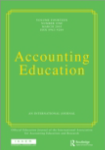This is a scan of my chapter in the new book: Commerce and Community: Ecologies of Social Cooperation, edited by Robert F. Garnett, Paul Lewis, and Lenore T. Ealy. London: Routledge, 2015.
On the Renting of Persons: The Neo-Abolitionist Case Against Today’s Peculiar Institution
To answer the “best case” voluntary-contractarian arguments for slavery and autocracy, the democratic and antislavery movements forged arguments not simply in favor of consent but arguments that voluntary contracts to legally alienate aspects of personhood were invalid “even with consent”—which made the underlying rights inherently inalienable. Once understood, those arguments have the perhaps “unintended consequence” of ruling out today’s self-rental contract, the employer-employee contract.
Talks and Publications in 2014
This is my 2014 yearly update on talks and publications (snarky emails and FB comments not included).
Why Delayed Choice Experiments do Not imply Retrocausality
This is the on-line first version (unpaginated) of my first publication in quantum mechanics. It shows how delayed-choice experiments should be interpreted so they do not imply retrocausality.
The Neo-Abolitionist Case Against Renting People
The talk presents the arguments from inalienable rights theory in a neo-abolitionist framework as making the case against the renting of people, i.e., against the employment relation–echoing the abolitionist case against the owning of people.
American Revolution Applied to Corporations
The basic idea of the talk was to take the fundamental principles of the American Revolution and apply them to the economic sphere.
Double-entry Bookkeeping: The Mathematical Treatment
This publication represents success in a long struggle, stretching over three decades, to get the mathematical treatment of double-entry bookkeeping published in an accounting journal.
Talk on Alienation versus Delegation at Troy University
These are the slides for a talk on Alienation versus Delegation at a conference on Philanthropy and the Economic Way of Thinking at Troy University, Troy, Alabama November 7, 2014.
Talk on property theory at UMKC, Nov. 2014
These are the slides, with some minor additions and editing, for a talk On Property Theory given at the University of Missouri at Kansas City Economic Department November 17, 2014.
Property and Production
This is the 30th anniversary of the publication of this paper, Property and Production, which laid out the whole property-theoretic analysis of production. I would not change a word today.







